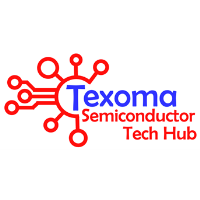Biden-Harris Administration Designates Tech Hub in Texoma Region to Drive Innovation in Semiconductors
The Biden-Harris administration, through the U.S. Department of Commerce’s Economic Development Administration (EDA), has announced that Texoma Semiconductor Tech Hub in North Central Texas and Southern Oklahoma was designated as one of the 31 inaugural Tech Hubs in regions across the country that show potential for rapid growth in key technology sectors.
The Texoma Semiconductor Tech Hub, a consortium led by Southern Methodist University, will unify existing and planned semiconductor supply chain infrastructure to drive the innovation ecosystem and build supply chain resistance. The Tech Hub will leverage its central location and robust transportation network to enhance regional collaboration and expand its workforce by deploying a geographically-distributed model to build targeted, accessible labs for electronic design, semiconductor manufacturing, packaging, and testing.
This designation is part of the first phase of the novel Tech Hubs program, authorized by the CHIPS and Science Act, that will invest directly in high-potential U.S. regions and aim to transform them into globally competitive innovation centers. Designation is an endorsement of the region’s strategy to supercharge their respective technological industry to create jobs and strengthen U.S. economic and national security. Designated Tech Hubs are now eligible to apply for the next phase of the Tech Hubs Program that will invest between $50-$75 million in each of 5-10 Designated Hubs.
In addition to a Tech Hubs Designation, EDA announced today that Texoma Semiconductor Tech Hub was also awarded a Tech Hubs Strategy Development Grant that will help the consortium increase local coordination and planning activities to strengthen its region’s capacity to manufacture, commercialize, and deploy critical technologies.
“President Biden’s Investing in America agenda is rooted in policies that will empower the United States to out-innovate and out-compete the rest of the world. Our Tech Hubs Program is fundamental to that mission and will supercharge innovation across the nation by spurring cutting-edge technological investments and creating 21st century job opportunities in people’s backyards,” said U.S. Secretary of Commerce Gina Raimondo. “Each of these consortia will help us ensure the industries of the future—and their good-paying jobs—start, grow, and remain in the United States.”
“These outstanding consortia exemplify place-based economic development strategies at their best: combining federal resources with regional assets, expertise, and coalitions to implement transformational opportunities,” said Assistant Secretary of Commerce for Economic Development Alejandra Y. Castillo. “As each region develops its own strategy to catalyze innovation and job creation, the entire nation grows more secure and more competitive.”
“The future of America’s semiconductor industry is in Texas,” said Texas Governor Greg Abbott. “I thank the Economic Development Administration for establishing this Tech Hub in North Texas, which will boost the local economy and further cement Texas’ position as the nation’s leader in semiconductor manufacturing.”
The 31 Tech Hubs were selected from 198 applications from regional consortia that include industry, academia, state and local governments, economic development organizations, and labor and workforce partners. The Tech Hubs span regions across 32 states and Puerto Rico and represent a cross section of urban and rural regions.
For a full list of Tech Hubs, visit TechHubs.gov.
About the U.S. Economic Development Administration (www.eda.gov)
The mission of the U.S. Economic Development Administration (EDA) is to lead the federal economic development agenda by promoting competitiveness and preparing the nation’s regions for growth and success in the worldwide economy. An agency within the U.S. Department of Commerce, EDA invests in communities and supports regional collaboration in order to create jobs for U.S. workers, promote American innovation, and accelerate long-term sustainable economic growth.
-
For More Information, Contact Paul Bendel Executive Director
- February 06, 2024
- 972-792-2850
- Send Email


